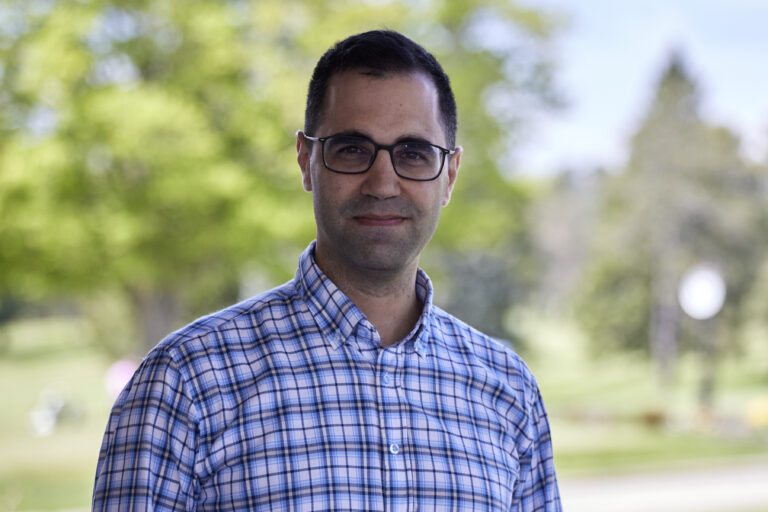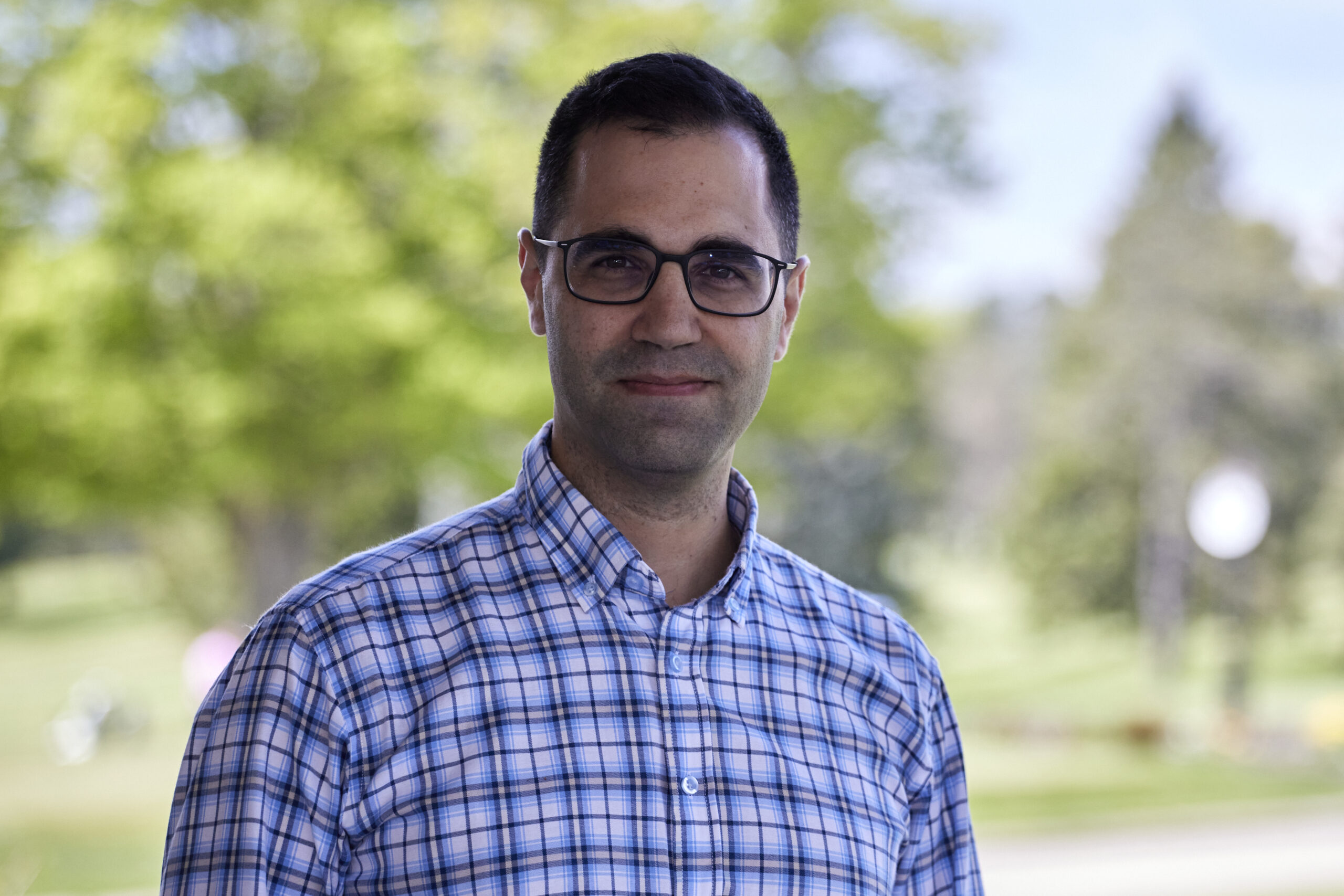PHRI researchers presented results from phase-2 stroke trials testing different orally active coagulation Factor X1a (FXIa) inhibitors in patients with ischemic stroke – in Hot Line Session 5 at ESC Congress 2022 today.
PACIFIC-Stroke: Testing asundexian

Ashkan Shoamanesh
PHRI Scientist Ashkan Shoamanesh presented results from PACIFIC-Stroke – a phase 2b dose-finding randomized trial that recruited participants with acute (within 48 hours) non-cardioembolic ischemic stroke. (Download his slides.) Results were published in The Lancet on Sept. 2, 2022.
This trial addressed a significant unmet need: The stroke recurrence rate in patients with non-cardioembolic ischemic stroke averages more than 6% in the year following stroke, despite guideline-recommended treatment.
This trial tested the oral FXIa inhibitor, asundexian (BAY 2433334); 1808 participants at 196 sites in 23 countries were randomly assigned to once daily asundexian 10mg, 20mg, 50mg, or placebo, in conjunction with single or dual antiplatelet therapy.
Participants were followed for 6 to 12 months. Brain MRIs were obtained at study entry and after 6 months to detect symptomatic ischemic stroke or covert brain infarcts.
Asundexian did not reduce the composite of covert brain infarction or ischemic stroke and no dose response could be shown in patients with acute, non-cardioembolic ischemic stroke – driven by lack of effect on covert brain infarction (largely due to small vessel disease)
Treatment with asundexian 50mg reduced recurrent symptomatic ischemic strokes and TIAs, particularly among those with atherosclerosis, and there was no significant increase in the risk of major or intracranial bleeding with the use of asundexian.
“The promising results from this phase 2 trial require validation in an adequately-powered phase 3 randomised trial – PHRI’s planned OCEANIC-Stroke,” said Shoamanesh, which will investigate asundexian in addition to antiplatelet treatment for the prevention of ischemic stroke recurrence in patients with non-cardioembolic ischemic stroke and established atherosclerotic disease.
AXIOMATIC-SSP: Testing milvexian
In the same Hot Line Session at ESC Congress, PHRI Scientist Mike Sharma presented on AXIOMATIC-SSP, a phase 2 trial in patients with a prior ischemic stroke or high-risk transient ischemic attack (TIA) who have a 5-10% risk of another ischemic stroke in the first few months. (Download Sharma’s slides.)

Mike Sharma
Sharma’s study was designed to evaluate if the oral FXIa inhibitor, milvexian (BMS-986177), might reduce the risk of ischemic stroke without a clinically important increase in bleeding risk compared with placebo in patients after an ischemic stroke or high-risk TIA.
AXIOMATIC-SSP involved 2,366 patients from 367 sites in 27 countries; they were randomized to receive 1 of 5 doses of double blind milvexian (25, 50, 100, 200 mg twice daily, 25 mg once daily) or placebo. The median age was 71 years and 64% were men.
Milvexian was associated an approximately 30% relative risk reduction in symptomatic ischemic strokes compared to placebo. Although a dose response was not observed. The incidence of major bleeding was low overall with milvexian.
“Based on the observed efficacy signal for ischemic stroke, the bleeding profile, and the overall safety and tolerability, milvexian will be further studied in a phase 3 trial in a similar stroke population,” said Sharma.
The rationale and design of the AXIOMATIC SSP phase-2 trial was published in the Journal of Stroke and Cerebrovascular Diseases
#ESCCongress | AXIOMATIC-SSP: in this phase 2 trial treatment with milvexian was associated an approximately 30% relative risk reduction in symptomatic ischemic strokes compared to placebo. Although a dose response was not observed. pic.twitter.com/05KjWmZMzw
— Cardioinfo (@Cardioinfo_it) August 28, 2022
In the same Hot Line Session at ESC today, PHRI’s large trial on stroke prevention for patients with RHD and AF in 24 low and middle-income countries, INVICTUS, was presented.




